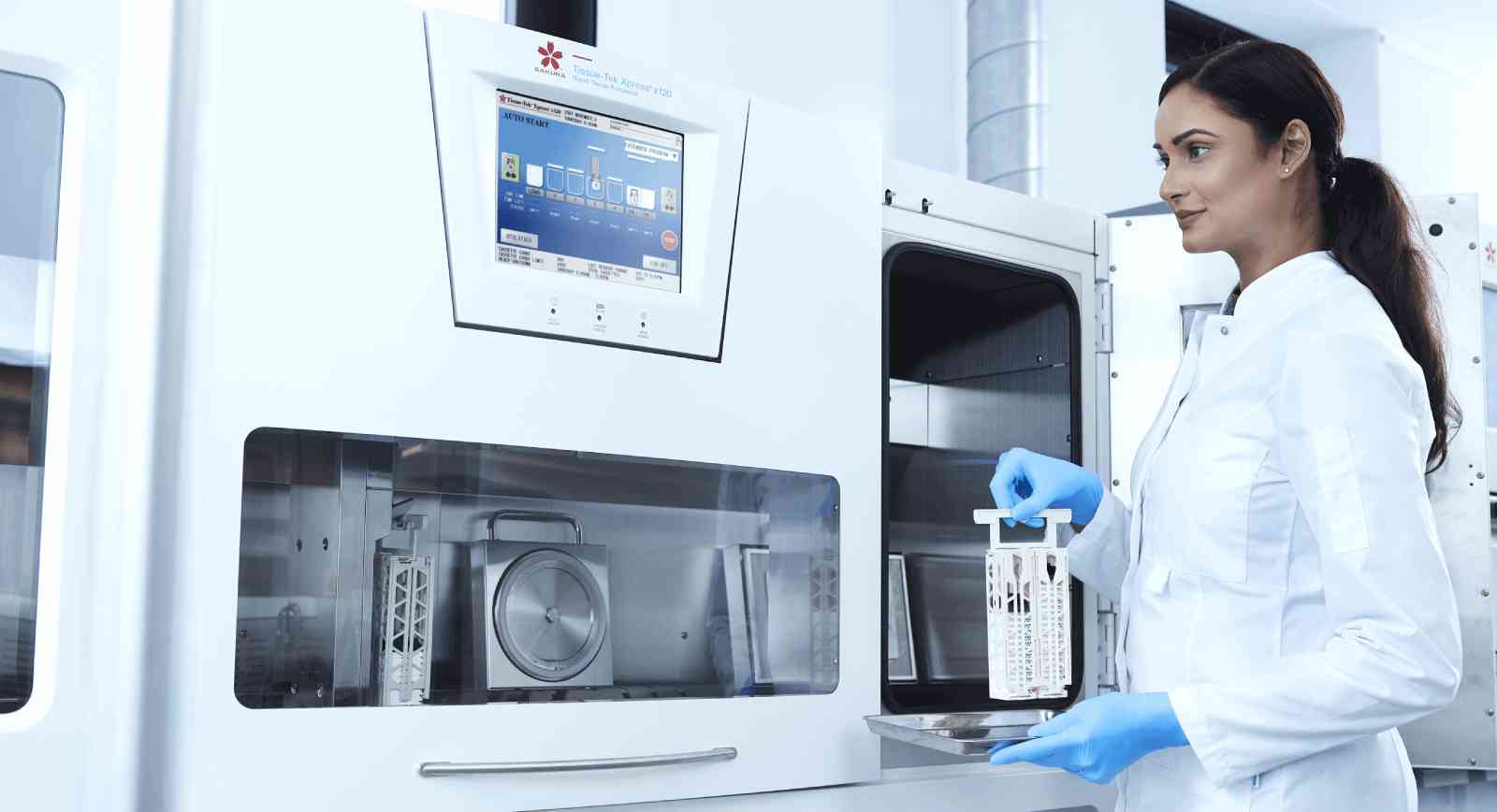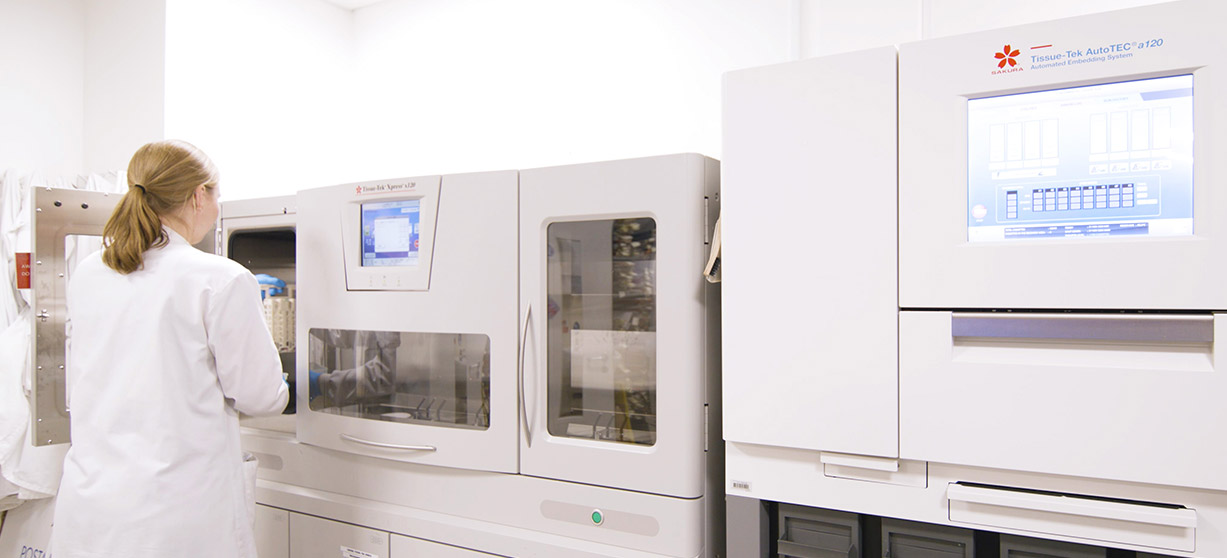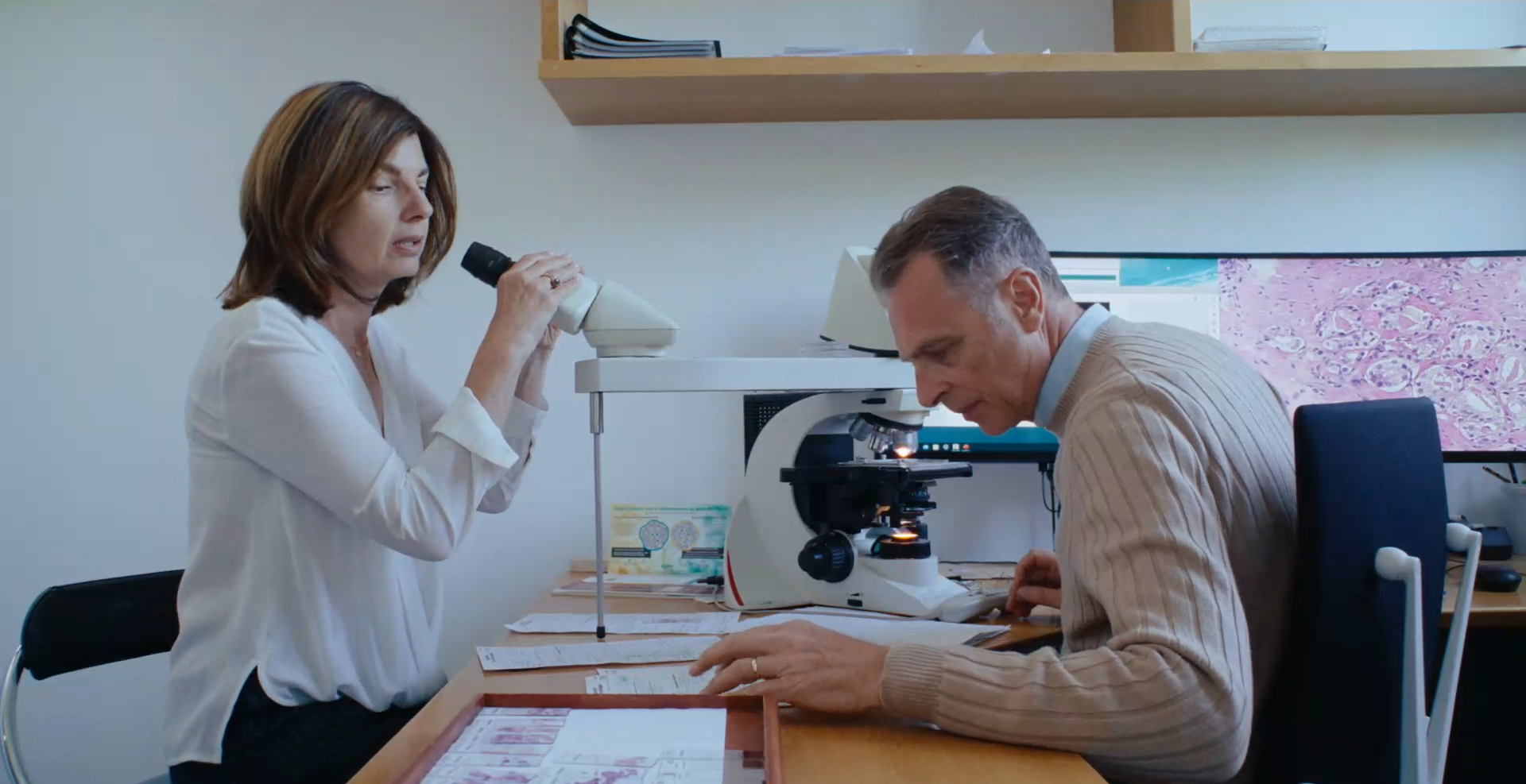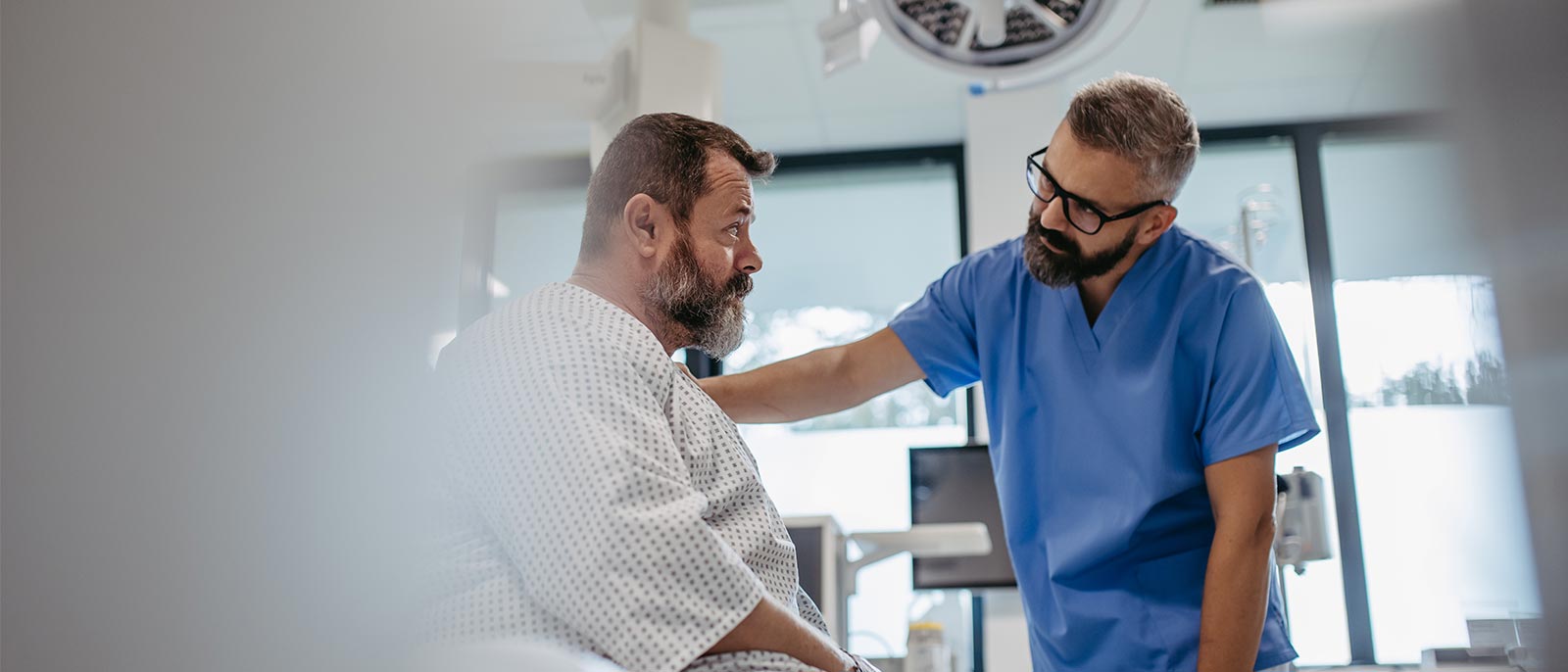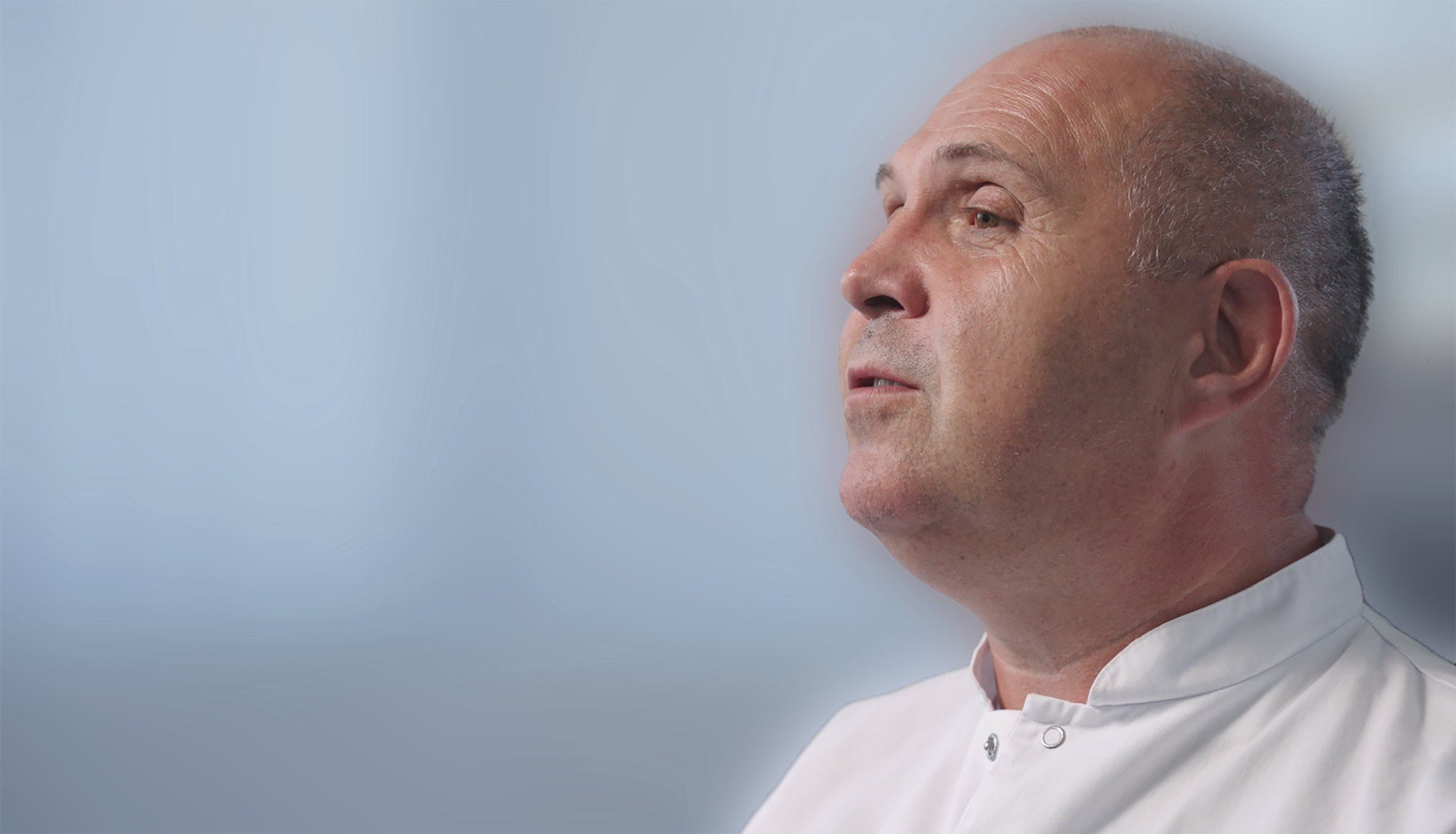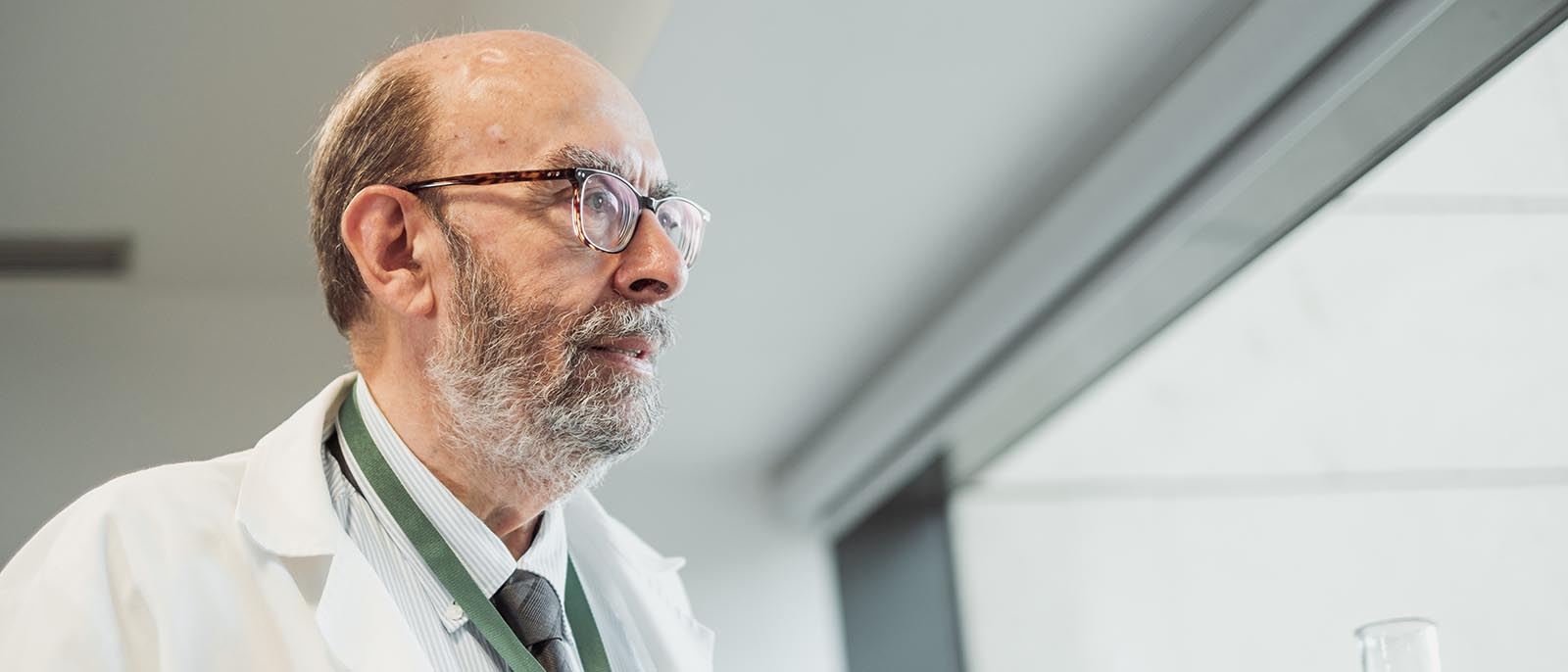Interview conducted by Korine van Veldhuijsen with Chief Biomedical Scientist Ørjan Olsen Axelson and super user Hilde Rødningen, at Haukeland University Hospital in Bergen, Norway.
Haukeland University Hospital
Each year some 600,000 patients are treated and a couple of thousand medical professionals trained at the Haukeland University Hospital. The laboratory employs 20 people and processed 35,000 requests in 2010. This boils down to some 150 histological-pathological requests a day, altogether resulting in 670 slides a day. In 2010, the immunohistochemistry department processed 100 requests per day and in 2011 the overall number of requests had increased by approximately 14%.
Work stress and long processing times
Demotivating batching problems and processing times of more than 10 days made Ørjan Olsen Axelson realise that he wanted to work leaner. In January 2011, a company called Valumatrix joined the team to start up the process. All work processes were timed with a stop watch.
Axelson explains that it was an eye-opener to see how much they could improve on their services.
Their main goal became fewer meters of travel for staff and tissue specimens, an uninterrupted, efficient work flow and faster processing times.
Working lean
The team started looking for new laboratory tools that would support the new working method. SMART Automation, the Tissue-Tek® premium production line by Sakura® Finetek, matched their ideas, as it could help them apply the principles of Lean.
The Tissue-Tek® Prisma® and Tissue-Tek Film® arrived in December 2010, the Tissue-Tek AutoTEC® with the Tissue-Tek® Paraform® cassettes in April 2011 and the two Tissue-Tek Xpress® x120s mid-August 2011.
One-day-diagnosis
At the time of interviewing, the new laboratory equipment had been installed for eight weeks. In the meantime, the staff were able to make their diagnoses twice as fast as before, despite the fact that during the actual year there had been a 14% increase in the number of requests. The highlight of the past period had been their very first ‘one-day-diagnosis’ ever, only nine days after setting up the Xpress.
We are now in the middle of a big renovation of our lab which, for the time being, doesn’t make our work any easier. Nevertheless, we have been able to carry through the new processing time. We are still aiming at three days for small specimens and five days for bigger tissue specimens. In addition, we want to be able to meet all future emergency requests.
The super users’ team
A team of four were appointed as ‘super users’, responsible for the new instruments and a part of the development of the Lean system. This resulted in a close commitment from his team and put forth a stream of ideas to increase the level of efficiency even more. The other Biomedical Scientists were also invited to come up with ideas and input. The super users like the challenge as it offers thinking along different lines.
I’m having a jolly good time reorganising this lab. It’s fantastic to be allowed to innovate and to improve on all aspects of our work. The instruments make a valuable contribution by doing some of the work for us. The incessant amount of work therefore now belongs to the past, just like the daily stress it involved.
Fewer biomedical scientists
The Tissue-Tek AutoTEC and Tissue-Tek Paraform enables the lab to have only two, instead of four Biomedical Scientists to manually embed the cassettes and for only four to five hours a day. This means that only two work stations are needed instead of four.
Everybody loves the Tissue-Tek AutoTEC. It is fast, standardised and a lot safer. The most important thing is that there is no need to open the cassettes, which prevents making mistakes. The two superfluous biomedical scientists are now able to be of service on other routine work stations. This gives time to ensure quality or to further improve our procedures.
Quality guarantee
The Tissue-Tek Xpress x120 processes 30% of the tissue specimens in the Haukeland University Hospital Laboratory.
At the same time, we’re conducting a blind test among our twenty pathologists to ensure the quality. Each tissue type is processed by the standard programme, lasting one hour, by the extended programme for two hours and by the Tissue-Tek VIP®.
Our final goal for the next couple of months is for the Tissue-Tek Xpress x120 to process 85% of all tissue specimens. But, it’s important to gain the confidence of all pathologists, which I’m sure will happen. The quality of the processed tissue specimens seems to be very good. So far, we have hardly had any problems with the Tissue-Tek AutoTEC and Tissue-Tek Xpress instruments.
If something is the matter, our contact person with Sakura immediately takes action.
Cost saving
In Norway too, they want the number of nights spent by patients in a hospital to be reduced. Both cost control and the wish to give the patients their diagnosis and subsequent treatment as quickly as possible, play an important role. If it were up to Axelson, the blind test should progress equally fast to ensure that efficiency and work flow will be the rule in his laboratory.
Committed
Rødningen describes her experience with the Tissue-Tek AutoTEC, Tissue-Tek Prisma and Tissue-Tek Film as well as the Tissue-Tek Xpress, as being user-friendly with high reliability.
Moreover, it’s a relief to keep up with the work. We are now finally in control after having worked with never ending stacks of cassettes, which were really demotivating. Now we try to work as fast and as efficiently as possible which often ends up in small competitions. An example would be, “I’ve already finished loading my cassettes. Do you have any new ones yet”? The new processing instruments have really improved the atmosphere at work.
What does she enjoy most about the super user status?
Rødningen answers: It enables me to learn a lot about the new instruments, the lab processes and about team building. I’m really enjoying all the changes.
